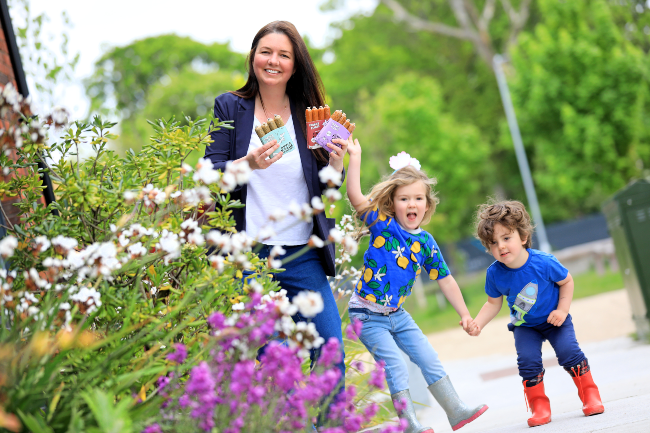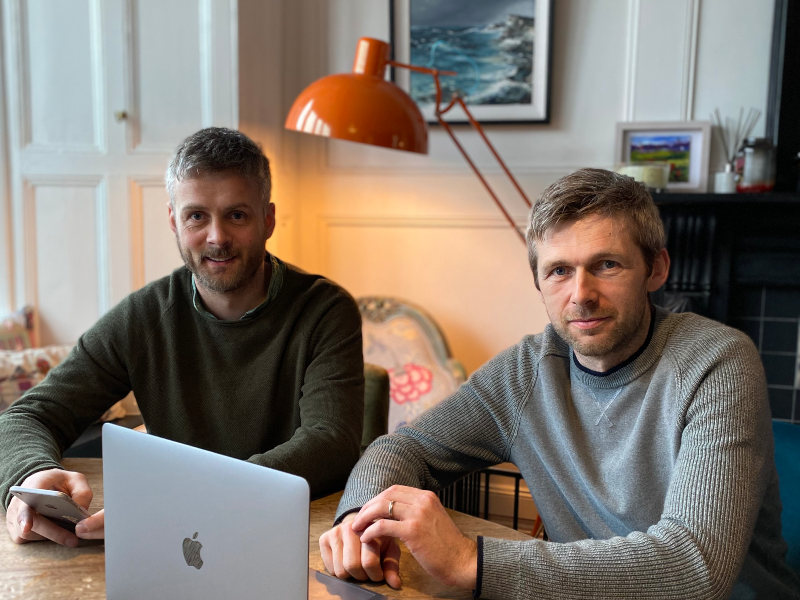Food entrepreneur Aisling Cullen established Thanks Plants to provide a healthy and tasty alternative to meat. As part of the SuperValu Food Academy she has developed a product roadmap that marches in step with the public’s desire to eat more healthily.
Thanks Plants is a 100pc plant-based, handmade vegan sausages brand. Produced locally in Ireland, Thanks Plants is a delicious and wholesome option for vegans and anyone trying to reduce their meat intake and is available in a number of varieties, including apple and sage; sun dried tomato and herb and a frankfurter option.
The company was one of 15 firms from all over Ireland that were selected to join the SuperValu Food Academy.
“I had a lightbulb moment and thought to myself, ‘maybe this is something I can do as a business’”
Now in its seventh year, the SuperValu Food Academy is a unique food business development programme between SuperValu, Bord Bia and the Local Enterprise Offices (LEOs). Participants in the programme receive training in market research and branding, food safety, marketing, finance and business development.
After emerging from the programme Cullen commented: “Over the last six months, with the help of Supervalu’s Food Academy, I’ve been working steadily to develop a unique product. Without the help of Food Academy, I would not be where I am now. It has given huge support to all the producers involved, and I recommend it for any new producer starting out.”
Cullen is an inspiration for budding food entrepreneurs who have an idea but just need the courage to act on it.
We asked Cullen to elaborate on her plans to grow the business.

Aisling Cullen of Thanks Plants, with her children Aida (5) and Sebastian (3)
“For any new food producer, I would recommend trying out your product in a market before committing large amounts of cash to branding or equipment”
What is the food opportunity you are addressing and why it matters to consumers?
I wanted to create a wholesome product for consumers, and I was already making and enjoying my own meat substitutes at home using whole food ingredients. I had a lightbulb moment and thought to myself, ‘maybe this is something I can do as a business’. Thanks Plants is a very attractive offer to consumers as it is a simple mix of grain, legumes, veg and spices and it’s easy to understand all of the ingredients on the back of the packet.
My products also matter to consumers because there is increasing demand for meat-free products both from vegans and also from flexitarians who want to reduce their meat intake in their diet. Consumers are starting to think more about their food choices and are shifting to plant-based options, whether it be for their health, environmental reasons or ethicial issues.
What is your core product and service all about?
Before I set up Thanks Plants, I would pick up a meat alternative and you would need a science degree to understand the ingredients on the back of the pack and I wondered why companies couldn’t have a more whole foods approach. Thanks Plants is all about providing meat-free, high-protein products and we launched with a range of sausages mainly because as a product, they are very versatile.
The Apple and Sage sausage is great as a breakfast sausage or in bangers and mash, and the Sundried Tomato and Herb one works well when it is chopped into a pasta dish or sliced onto a pizza. I brought out the Frankfurter because I was launching in SuperValu in the summer and a hot dog on the BBQ is a must.
Who are the founders of the company and what are the experiences that encouraged you to become a food/beverage products business?
I’m the founder, but I also receive a lot of help from my design team who own part of the company. They have given me great branding and business advice and also support with the brand’s social media activity. I have always had an interest in food, but my professional background is in retail property. I lived in Malaysia for six years and I set up my own café while I was living there. I moved back to Ireland a few years ago, but wasn’t happy in the corporate world so I decided to move into the food industry. I was following my passion, and I’m delighted that I made the move.
What was the product development journey like and how do platforms like the SuperValu Food Academy help?
SuperValu Food Academy has catapulted my brand from being an idea into a reality. Every week, it provided us with different mentors, each focusing on a particular aspect of the industry, from food safety to marketing and food regulations. It also sets targets for what you should be doing and also provides contacts for who you should be talking with to make everything happen. The support I received throughout the Food Academy programme has been amazing and it would have taken twice as long to get where I am now without it. SuperValu has also been very supportive every step of the way and has helped to guide me through the whole process.”
What are your impressions of the food products ecosystem in your region and in Ireland in general and what can be done to boost the overall industry?
I believe it’s a strong industry and there are fantastic producers out there with some great products available on a small scale in supermarkets. I’d say that scaling up and getting to that next level is one of the biggest challenges facing food start-ups. It can be quite daunting, but equally there are some very strong supports available to indigenous producers like Food Academy, which has helped to build some great Irish food brands.
“I didn’t realise there was so much support to help me build my business, so if you get the opportunity to participate in Food Academy, do it”
What are the biggest mistakes or lessons you have learned so far?
For any new food producer, I would recommend trying out your product in a market before committing large amounts of cash to branding or equipment. It is a real eye opener and you don’t realise the amount of work involved when you start to make food in large quantities. After purchasing specialist equipment, doing shelf-life testing, branding and packaging, it’s an expensive industry to get into, so try to stick to your budget before it gets out of control.”
What advice do you have for others entering the food business?
I didn’t realise there was so much support to help me build my business, so if you get the opportunity to participate in Food Academy, do it. There are so many things you need to get in place before starting up a food business so Food Academy will help mentor you through the process. And before spending a cent, do your research and speak to your Local Enterprise Office.
They have fantastic supports and grants, and there are some really good online courses available right now to help you upskill.
Remember, when you start out you will be a jack of all trades and it is likely that you will be in charge of food production, food safety, distribution to stores, marketing, finances and everything in between, so be prepared for the long road ahead.
Interview by John Kennedy (john.kennedy3@boi.com)
Published: 5 June, 2020






